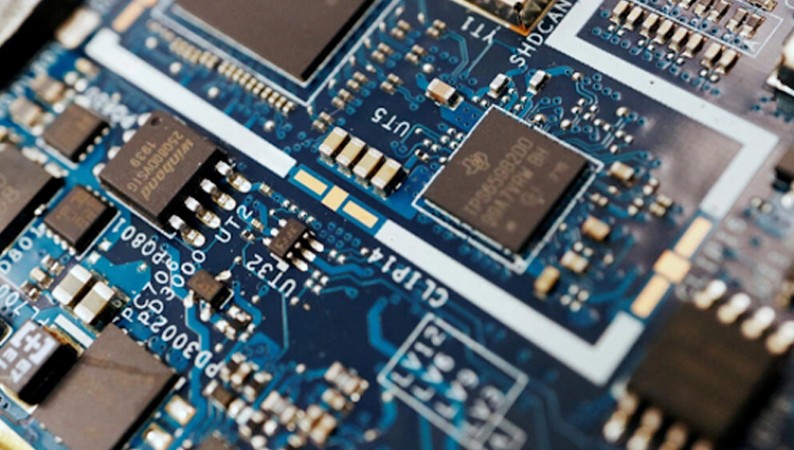
Paris: On October 16, the Chinese Communist Party Congress began in Beijing, a week after Washington banned the export of priceless semiconductor technology to China to prevent it from overtaking the US militarily and economically.
Media spoke to the author of a new bestseller on these important silicon pieces as semiconductors become a vital battleground.
Also Read: OPEC cuts crude oil demand growth estimates
Semiconductors have long been an essential component of everything from ballistic missiles to refrigerators. However, they have only recently come to the attention of the public.
When Donald Trump's Commerce Department forbade Chinese telecommunications giant ZTE from buying US-designed chips in 2018, Washington demonstrated the immense power of the US semiconductor industry. These actions almost brought the company to its knees before the unstable then-President changed the course of action.
However, Semiconductors didn't start capturing the news until early 2021. A confluence of factors, including the Covid lockdown, distorted consumer demand, led to a chip shortage crisis, leading to inflation and resulting in shortages of products ranging from cars to mobiles. Phone. ,
After President Joe Biden's Commerce Department announced significant new measures to restrict US exports of semiconductor technology to China on October 7, the spotlight on semiconductors is now back ahead of the Chinese Communist Party Congress.
It was a component of Biden's response to President Xi Jinping's plans to move China away from US-designed chips and establish him as a global leader in the industry. To learn more about semiconductors. dominates global economics and politics.
What are semiconductor chips and how did they become so central to the world economy and daily life?
There are countless millions and billions of tiny circuits made of tiny bits of silicon called semiconductors. Almost any device with an on/off switch, including smartphones, computers, data centers, cars and dishwashers, is powered by these circuits. Although we rarely see them, the average person will interact with dozens, if not hundreds, of semiconductors every day. ,
America's technological edge was essential. The Pentagon was obsessed with using computing power in defense systems since the beginning of the missile race.
Chips were previously widely used in missile guidance systems, but they are now used in a wide range of applications, including communications, sensors and electronic warfare.
Just as the average person interacts with dozens of chips per day, the force depends heavily on the chips' processing power and signal processing capabilities.
Furthermore, as they increasingly experiment with autonomous systems, the military will become even more dependent on state-of-the-art chips.
Thanks to its enormous scale and exceptional manufacturing accuracy, TSMC is the most sophisticated manufacturer of processor chips in the world.
90 percent of the most cutting-edge processor chips used in everything from smartphones to PCs to datacenters are currently produced by TSMC.
Also Read: Sitharaman and Yellen talk about the global economy, the G20, Energy
They would have cost the world economy hundreds of billions of dollars if a war had halted their production. Manufacturing sophisticated chips is impossible without ASML's machines.
Lithography is ASML's area of expertise, and it controls 100% of the market share in manufacturing the most state-of-the-art lithography equipment. It has spent many years honing these capabilities and is now an important supplier to businesses such as Samsung, TSMC and Intel.
As Xi Jinping's Made in China 2025 initiative prioritizes chips, Washington has been concerned about China's national security implications in the semiconductor industry for several years.
Government chip development programs have received billions of dollars from China. These programs have advanced significantly in some areas, most notably chip design.
But when it comes to chip manufacturing, China consistently lags far behind Taiwan, South Korea and the US. Additionally, all chip manufacturing in China today relies mainly on machinery imported from the US, the Netherlands, and Japan.
Taiwan currently produces 90% of the most state-of-the-art processor chips on the planet. This is a risk to the world economy that has gone out of hand given China's growing military might and Xi Jinping's aggressive nationalism.
Also Read:Bitcoin Investment – Understanding the Pros and Cons
From this angle, it makes sense to try to diversify the places where advanced chips are manufactured. The US, Japan and Europe are all working to strengthen their countries' positions in the semiconductor supply chain, which explains why.